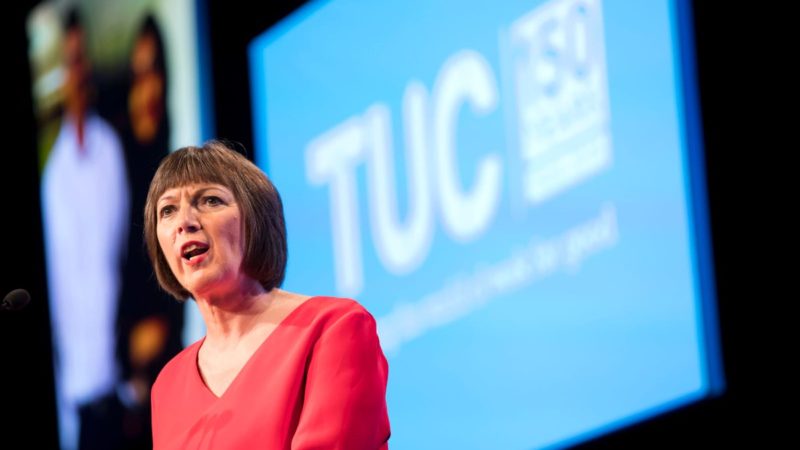
The pandemic has thrust how, and why, we work into the spotlight as never before. Many of us have seen our working lives turned upside down as offices have been closed. But others have had no choice but to put themselves in harm’s way in the service of others. And many of these key workers have received the minimum wage for their troubles, doing this most important work for the least reward.
Covid has also underlined the importance of safe, healthy working. And it has exposed how the UK’s preponderance of low-paid, insecure work lies at the heart of profound inequalities in society – with women, Black, Asian and minority ethnic workers and disabled workers on the frontline. This poor-quality work is a root cause of the UK’s shocking health inequalities. As Michael Marmot and others have noted, it is no coincidence that the places with the lowest life expectancy are also those with the lowest wages, weakest skills and poorest-quality jobs.
Even before the pandemic struck, the world of work was failing millions of workers. With our labour market still one of the least regulated in the developed world, working people have been left to face the consequences. One in nine UK workers is employed precariously. One in five does not earn enough to live on. And one in three children are growing up in poverty, often with at least one parent in work. Shockingly, these include a million children in key worker households.
The trade union movement has always existed to win dignity, decency and voice for working people. And that imperative is even more urgent now, amidst the disruption of the pandemic, Brexit, tech change and the climate emergency.
Throughout the pandemic, the TUC and trade unions won real gains for working people, including the furlough scheme that has protected the livelihoods of so many workers. But while we will keep organising, bargaining and campaigning for change, ultimately it is the government that wields greatest influence on the way we all work.
Through new policies, regulations and laws, there is much a future progressive government could do over a ten-year timespan to transform our working lives and promote health and wellbeing. That is why the TUC is calling for a bold vision to improve work, boost productivity and reduce inequality. Decent, meaningful work goes to the heart of what – and who – Labour is for, and it is key to good mental and physical health.
Trade unions know instinctively that you can’t have dignity and decency in the workplace without a strong voice for working people. As Marmot recognises, a lack of control at work undermines workers’ health and wellbeing, with long-term social consequences.
The pandemic, changing world of work and rising health inequalities all underline the need to protect and enhance workers’ health and wellbeing. Naturally, this must start with proper funding for the health and safety executive, inspection and enforcement. And it must extend to stronger trade union recognition rights, because unionised workplaces are strongly correlated to lower absence, illness and accident rates.
But workers’ wellbeing also demands a change of mindset in how we think about work, the economy and society. While measuring growth will always be important – for funding our public services and our pensions – other metrics must be given greater prominence. Among them must be measures of inequality, pay differentials, employee happiness and workplace health. General wellbeing (GWB) matters just as much as GDP.
All of this is even more important given the flexible working revolution unleashed by the pandemic. With the borders between home and working life increasingly blurred, it is time the UK followed other European countries and introduced a new right to disconnect. And as we address the issues raised by the growth of homeworking, we must also strive to deliver greater flexibility and choice for all working people, regardless of where they work. We cannot allow a class divide between those with “Zoomable” jobs and everybody else to take hold.
The spectacular rise of home working could permanently change the way many of us work – with profound implications. Workers in transport, hospitality and other sectors could find their jobs are at risk. The workforce may become even more atomised and fragmented. And it could become harder for unions to recruit and organise dispersed workers. Progressives must address these questions now, not in five years’ time.
The pandemic has raised fundamental questions about how we live, how we work and the things we value most – both individually and collectively. It has exposed, and exacerbated, inequalities of race, class, gender and disability. And as we have seen so graphically, these inequalities can literally be a matter of life or death.
Decent work for all can help us heal these fractures in our society. Meaningful, fairly-rewarded jobs can make Britain fairer, healthier and more equal. That is why a compelling vision of good work, in an age of change, must be a central priority for future progressive governments. Naturally, trade unions have a huge contribution to make to that conversation. For us, decent work goes hand in hand with a strong society and fairer, greener economy.
This essay is an edited version of one that first appeared in the Fabian pamphlet ‘Prescription for Fairness’.




More from LabourList
‘Labour council candidates – it’s tough, but all is not lost’
‘Labour won’t stop the far right by changing leaders — only by proving what the left can deliver’
‘Cutting Welsh university funding would be economic vandalism, not reform’